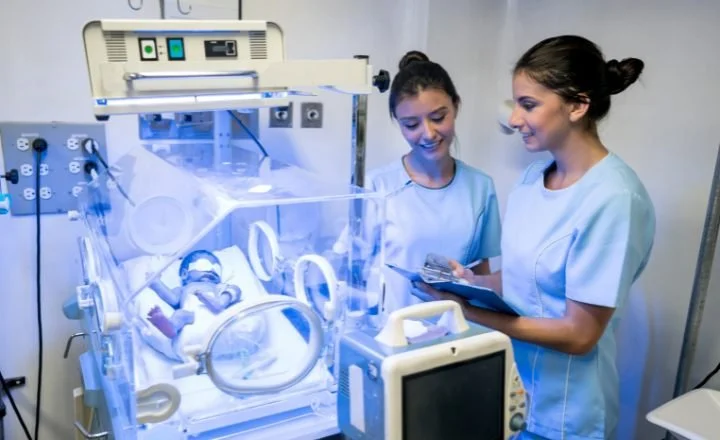Neonatal Billing Services: Codes, Compliance & Revenue Rescue
Neonatal care is one of the most sensitive and resource-intensive areas in healthcare. From premature births to critical NICU cases, every service provided must be billed accurately to secure timely reimbursement. This is where a skilled Neonatal Billing Company becomes indispensable. In 2025, updates to ICD-10, CPT codes, and payer compliance rules make neonatal billing more complex than ever — but also more important to get right.
A reliable billing service doesn’t just process claims. It protects a practice’s revenue, reduces denials, and keeps NICU operations running smoothly. Let’s explore the codes, compliance factors, and revenue-saving strategies shaping Neonatal Billing Services in 2025.
Table of Contents
Understanding Neonatal Billing in 2025
Neonatal billing covers newborn care from delivery to NICU treatment. Billing companies must track physician services, facility charges, critical care, and procedures like ventilation or resuscitation.
Key challenges include:
Multiple providers billing for the same patient.
Complex ICD-10 and CPT coding for critical procedures.
Strict payer guidelines for NICU services.
Frequent claim audits due to high treatment costs.
According to a 2024 survey, NICU claim denial rates exceed 18% — higher than many other hospital services. This makes neonatal billing expertise vital in protecting hospital and practice revenue.
“In NICU billing, every code is a lifeline — for the patient and the practice.”
Important ICD-10 Codes for Neonatal Billing
In 2025, ICD-10 updates bring more precision for neonatal diagnoses. Here are five of the most frequently used codes:
P07.3 – Preterm newborn, gestational age 28–31 weeks
P22.0 – Respiratory distress syndrome of newborn
P59.0 – Neonatal jaundice associated with preterm delivery
P36.9 – Bacterial sepsis of newborn, unspecified
Z38.0 – Single liveborn infant, delivered vaginally
Using the correct ICD-10 code is critical for claim approval. Billing errors often occur when coders fail to document gestational age, complications, or delivery method. P codes (Chapter 16) and Q codes (Chapter 17) should be prioritized for newborns ≤28 days old — as outlined in the ACDIS NICU coding guidelines.
Common CPT Codes in Neonatal Care
In addition to ICD-10, CPT codes capture physician services. Neonatal billing services must master these:
99468 – Initial inpatient neonatal critical care, per day
99469 – Subsequent day neonatal critical care, per day
99477 – Initial hospital care, per day, for evaluation and management of the neonate
99460 – Initial hospital or birthing center care, per day, for normal newborn
Daily critical care billing for neonates (like 99468–99469) must align with AAP’s Neonatal Critical Care coding guidance to avoid denials.
“A wrong CPT code can turn weeks of neonatal care into weeks of payment delays.”
Compliance in Neonatal Billing
Regulatory compliance is at the center of neonatal billing in 2025. Payers demand detailed documentation, and hospitals face frequent audits. Key compliance areas include:
Modifiers: Correct use of modifier -25 and -59 for procedures during evaluation.
Bundling rules: Avoid unbundling services that are included in NICU care.
Prior authorization: Required for high-cost interventions such as ventilation or transfusion.
HIPAA standards: Safeguarding sensitive neonatal patient data.
Research shows that standardized neonatal documentation reduces coding errors and improves claim acceptance, making compliance a revenue-protection strategy.
How Neonatal Billing Services Rescue Revenue
Hospitals lose millions annually from denied NICU claims. A specialized billing company helps recover this revenue by:
Thorough documentation review before submission.
Appealing denied claims with correct coding and clinical evidence.
Tracking payer policy updates for neonatal services.
Providing transparent reporting on denial trends and payment cycles.
In one significant case, MBW turned a $28,700 NICU denial into revenue in under 60 days by correcting level-of-care coding and streamlining documentation. Read more in our case study on Neonatal Billing & NICU Claim Recovery.
According to the American Hospital Association, effective neonatal billing practices can improve reimbursement rates by 15–20% annually.
Best Practices for Long-Stay NICU Documentation
Successful claims depend on precise documentation, especially when newborns require extended hospital stays. It’s vital to use correct weight-based CPT codes, note daily condition changes, and justify continued critical care.
For more detailed strategies, see our guide on NICU Coding & Billing for Long-Stay Newborn Care.
Technology in Neonatal Billing 2025
AI-driven billing platforms and electronic health records (EHR) integrations are streamlining neonatal billing. Advanced tools now:
Auto-flag incomplete documentation.
Suggest ICD-10 codes based on physician notes.
Track payer rule changes in real-time.
However, technology works best when combined with expert coders who understand neonatal care’s nuances.
“Automation speeds up billing, but human expertise keeps it correct.”
Why Partnering With a Neonatal Billing Company Matters
Managing NICU billing in-house is risky. The workload is intense, errors are common, and regulations shift often. Partnering with a dedicated billing company offers:
Trained neonatal coders.
Reduced claim denials.
Faster reimbursements.
More focus on patient care, less on paperwork.
Explore: Neonatal Billing Services — and discover how outsourcing NICU billing can protect your revenue.
FAQs About Neonatal Billing Services
Final Thoughts
In 2025, neonatal billing isn’t just about submitting claims. It’s about mastering ICD-10 and CPT coding, staying compliant, and protecting NICU revenue. With patient lives and hospital finances on the line, a skilled Neonatal Billing Company provides the expertise and precision needed to keep practices secure.
“Correct coding in neonatal care doesn’t just save revenue — it supports saving lives.”
Request for Information
Every missed NICU code means lost revenue. Fill out the form today to see how our neonatal billing services can protect your practice.


